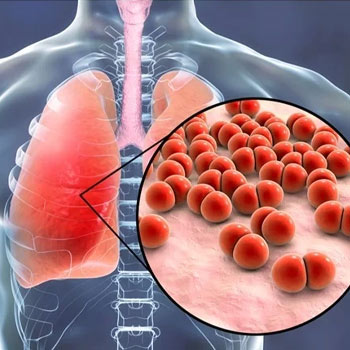Pneumonia is a common respiratory infection that can affect anyone, from young children to the elderly. It occurs when the air sacs in the lungs, known as alveoli, become inflamed and filled with fluid or pus, making breathing difficult and painful. Effective management of pneumonia is crucial to reduce complications and ensure a speedy recovery.
What is Pneumonia?
Pneumonia is primarily caused by bacterial, viral, or fungal infections. It leads to inflammation of the lung tissue, making breathing difficult and causing symptoms like cough, fever, chills, and difficulty breathing. Depending on the type of pneumonia and the patient's health status, management strategies vary widely.
Symptoms of Pneumonia
Recognizing the symptoms of pneumonia is the first step in effective management. Common signs include
- Cough: Often producing phlegm or pus.
- Fever: Sometimes accompanied by sweating and chills
- Shortness of breath: Especially during physical activity
- Chest pain: Sharp or stabbing, worsened by coughing or deep breathing
- Fatigue: Feeling unusually tired or weak
- Nausea, vomiting, or diarrhea: More common in children than adults
Diagnosis of Pneumonia
Diagnosing pneumonia typically involves a combination of
- Physical Examination: Listening to the lungs with a stethoscope for abnormal sounds
- Chest X-ray: To confirm the presence of inflammation or infection
- Blood Tests: Checking for elevated white blood cell count, a sign of infection
- Sputum Test: Analyzing a sample of mucus from your lungs to identify the specific bacteria causing infection
Treatment Options
The treatment approach for pneumonia depends on several factors, including the severity of symptoms, the patient's overall health, and the specific cause of the infection (bacterial, viral, or fungal). Common treatment options include:
Antibiotics
Prescribed for bacterial pneumonia to target the specific bacteria causing the infection. It's crucial to complete the full course of antibiotics as prescribed by your healthcare provider.
Antiviral Medications
If the pneumonia is caused by a virus, such as influenza or respiratory syncytial virus (RSV), antiviral medications may be recommended.
Antifungal Medications
Used to treat fungal pneumonia, which is more common in individuals with weakened immune systems.
Supportive Care
Includes rest, staying hydrated, and over-the-counter pain relievers to reduce fever and discomfort.
Hospitalization
In severe cases, pneumonia may require hospitalization, especially for
- Elderly Adults: Who may have weaker immune systems and underlying health conditions
- Young Children: Whose immune systems are still developing
- Individuals with Compromised Immune Systems: Such as those with HIV/AIDS or undergoing chemotherapy
During hospitalization, treatment may include intravenous antibiotics or oxygen therapy to support breathing
Prevention Strategies
Preventing pneumonia is possible through several strategies
Vaccination
Getting vaccinated against influenza (flu) and pneumococcal pneumonia can significantly reduce your risk.
Good Hygiene Practices
Washing hands frequently, covering your mouth and nose when coughing or sneezing, and avoiding close contact with sick individuals
Healthy Lifestyle
Maintaining a balanced diet, regular exercise, and not smoking can strengthen your immune system and reduce your risk of respiratory infections
Recovery and Follow-Up
Most people recover from pneumonia with proper treatment and rest. However, some may experience lingering fatigue or a persistent cough, especially if the infection was severe or complications arose. Follow-up appointments with your healthcare provider are essential to monitor your recovery and ensure there are no lingering issues.
Effective management of pneumonia involves early recognition of symptoms, prompt diagnosis, and appropriate treatment tailored to the specific cause of the infection. With advancements in medical care and supportive therapies, the prognosis for pneumonia patients has significantly improved. By following preventive measures and seeking medical attention promptly, you can protect yourself and your loved ones from this common respiratory illness.

